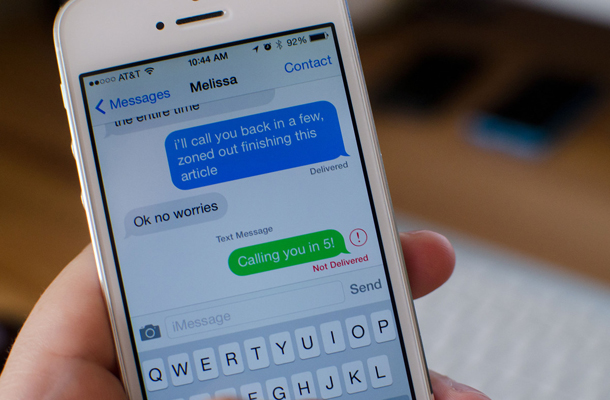Text Messaging New Literary Genre
April 25, 2017
A 2011 article in the Harvard Crimson called “Poetry as Texting” disputes the idea of text messaging as a form of poetry. The writer, Isabel E. Kaplan, responds to an interview by The Guardian in which Britain’s Poet Laureate Carol Ann Duffy said, “The poem is a form of texting . . . a way of saying more with less” which “allows feelings . . . in a very condensed form.”
While Kaplan disagrees with Duffy’s belief in text messaging as a form of poetry, she proceeds to indulge Duffy’s theory, including in the body of her article a poetic analysis of one of her own messages. “Im busy today. Going tmrw. When r u going?” receives the same treatment a piece of Frost or a scrap of Dickinson might in any English class.
“Perhaps,” writes Kaplan, “The omission of the apostrophe in the contraction ‘Im’ suggests that existence—conveyed by the word ‘am’—is not just related to identity, as the word ‘I’m’ might suggest, but rather is so inextricably linked to identity that it is impossible to differentiate the two.”
Kaplan continues her satire with the comment that the text’s use of present tense “signifies that the present situation conveyed in the text message takes precedence over what may conditionally happen in the future” and that “By writing ‘u’ instead of ‘you,’ the author devalues the significance of the Other.”
This literary exercise, however, does not bring Kaplan around to Duffy’s theory. “Maybe the omission of vowels and apostrophes signifies nothing more than the desire to spend less time typing the message,” concludes Kaplan, “And by maybe, I mean definitely.”
Other writers have been more welcoming to what some have begun to look at as the emergence of a new literary form. Internet poetry hotspot Hello Poetry has a whole section designated to “texting,” in which internet poets such as Samber Saenz, Matt Roberts, and Jon Tobias utilize the terse language of SMS to do what most poetry manages: capture fleeting impression.
“He watched his son’s football game / with a set of binoculars” describes Mark Roberts with SMS shortness. “dear daysleeper,” writes Saenz, similarly briefly, “hello September 3rd. i am apprehensive, i am disappointed. and im honestly sad.”
Perhaps Tobias’s poem best captures why text messaging is a perfect match for poetry. “It’s what we do / Find reasons to touch other people,” writes Tobias, seemingly speaking of, and therefore tying together both forms. “Operate at high speeds til we crash . . . Life is high speed / Feels like twelve seconds.”

